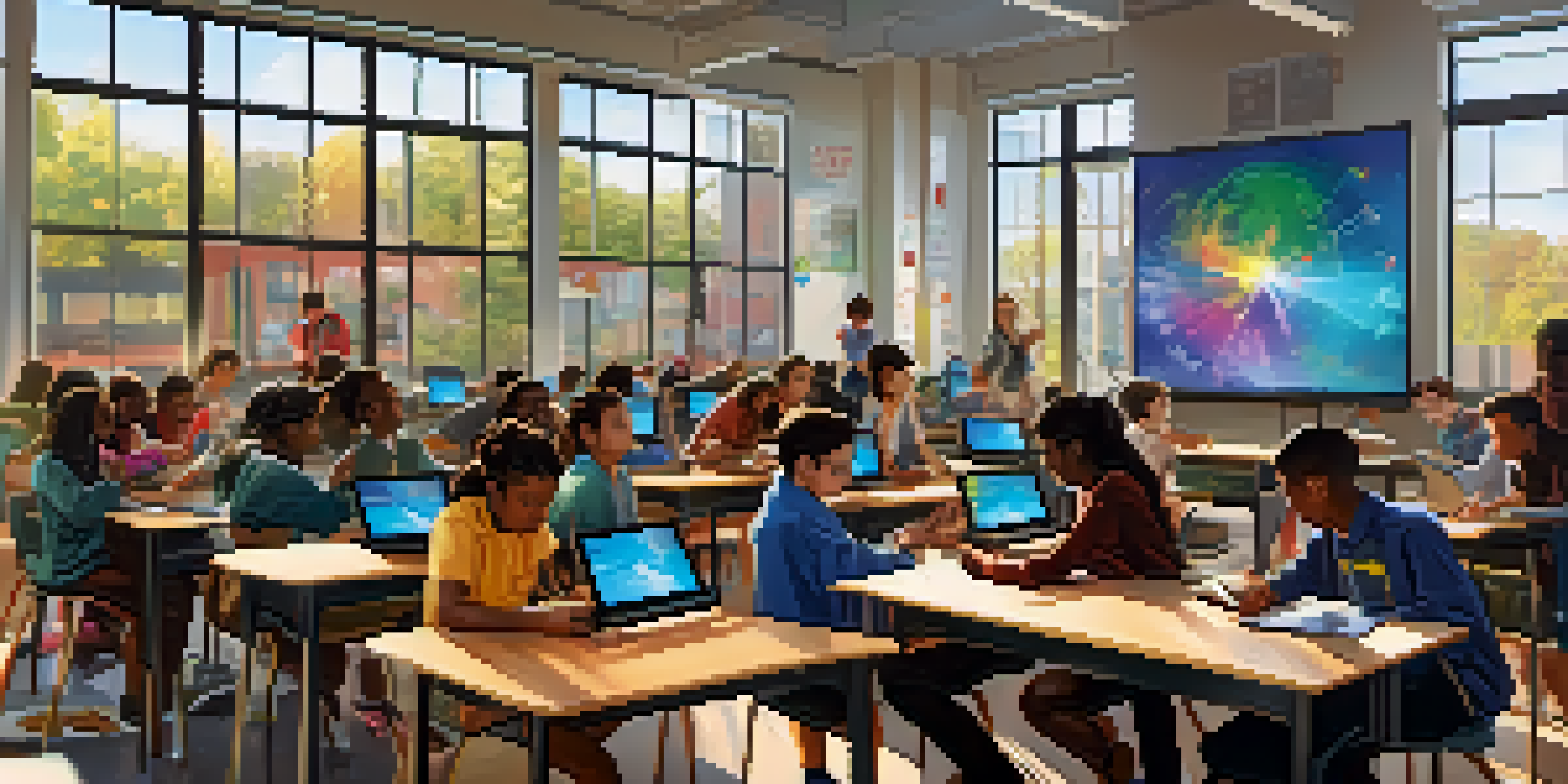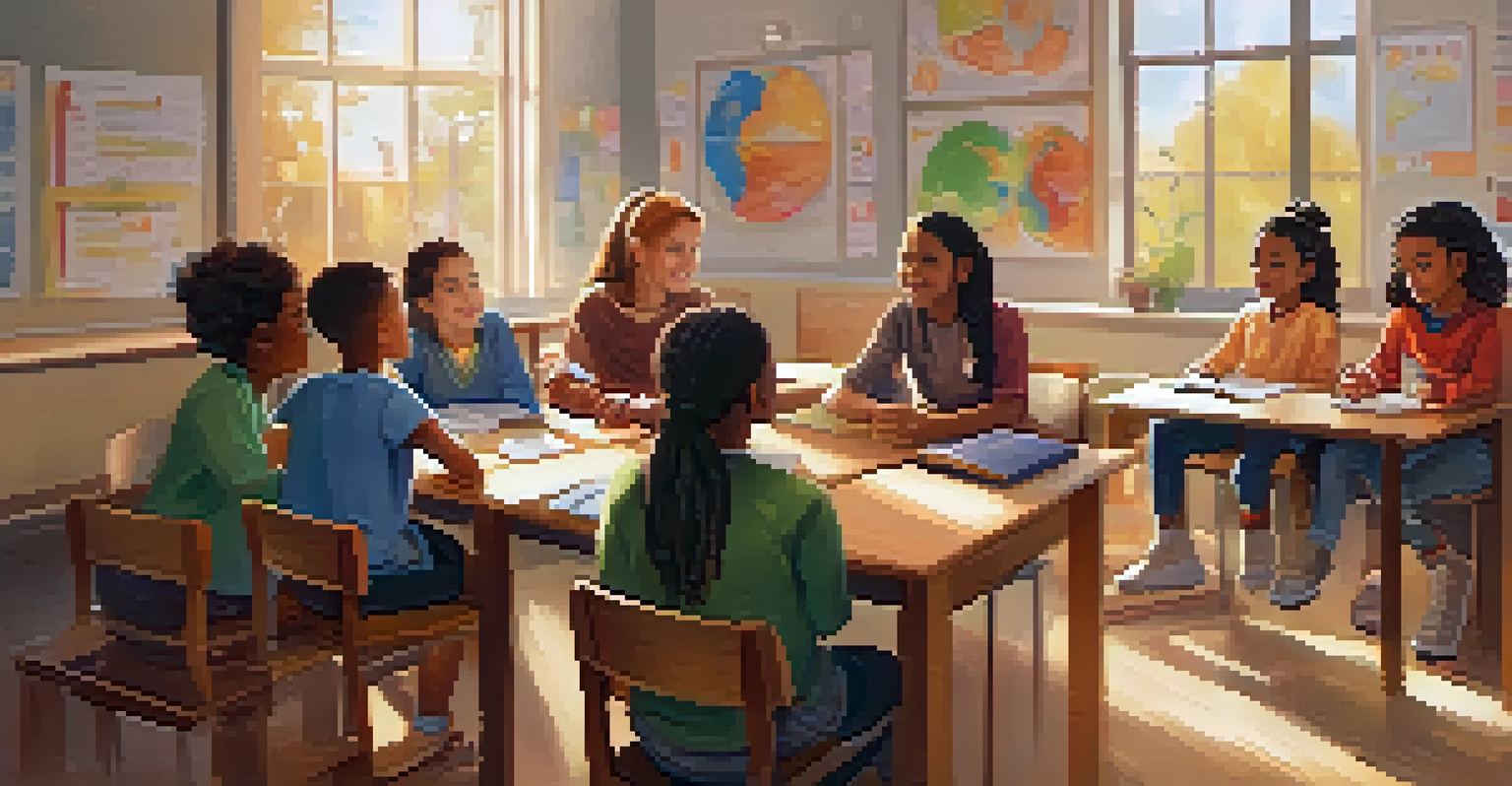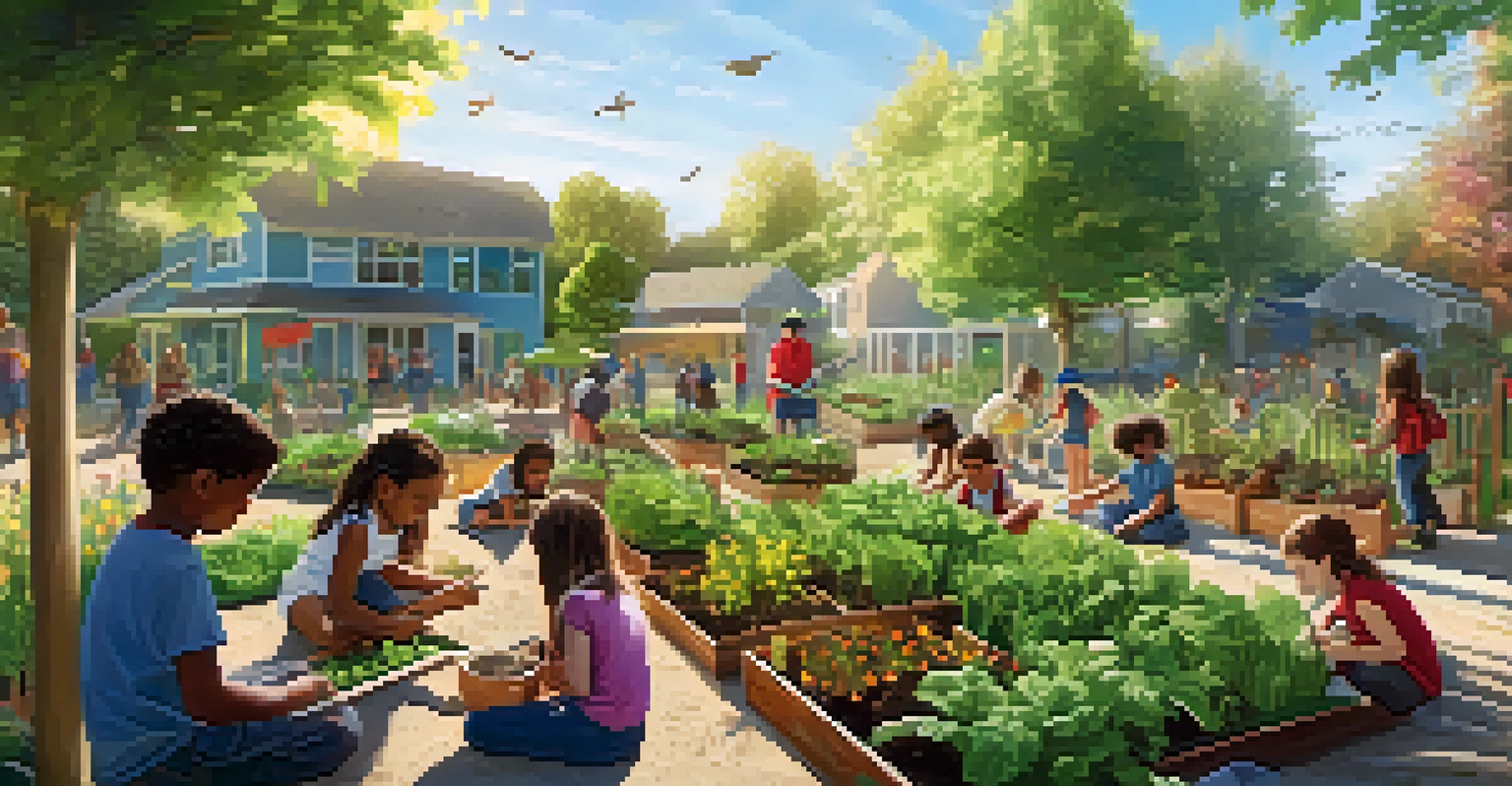Future Trends in Newark's Educational System: What Lies Ahead?

Embracing Technology in Classrooms
As we step into the future, technology will play a pivotal role in Newark's educational system. Schools are increasingly adopting digital tools, making learning more interactive and engaging for students. Imagine classrooms where students collaborate using tablets and virtual reality, exploring subjects in exciting new ways.
Education is the most powerful weapon which you can use to change the world.
Incorporating technology allows for personalized learning experiences, catering to each student's pace and style. This means that whether a student is a visual learner or thrives on hands-on activities, there are tools available to support their unique journey. It's not just about using gadgets; it's about enhancing education to meet modern needs.
Moreover, technology can bridge gaps, providing resources to underserved communities. With online platforms and remote learning options, education becomes accessible to everyone, regardless of their location. As Newark continues to evolve, this trend of tech integration is set to reshape how students learn.
Focus on Social-Emotional Learning
In the coming years, Newark's educational system will place a strong emphasis on social-emotional learning (SEL). This approach recognizes that students' emotional well-being is just as important as their academic achievements. Schools will implement programs to help students develop essential skills like empathy, resilience, and self-regulation.

By fostering a supportive environment, educators can better prepare students to navigate both challenges in and outside the classroom. Imagine students participating in group discussions where they learn to express their feelings and understand one another, creating a more harmonious school atmosphere.
Tech Revolutionizes Learning
Newark schools are integrating technology to create engaging, personalized learning experiences for all students.
Incorporating SEL into the curriculum not only enhances students' personal growth but also leads to improved academic performance. As Newark schools focus on the whole child, we can expect a generation of learners who are not only knowledgeable but also emotionally intelligent.
Diverse Learning Environments on the Rise
Newark's educational landscape is shifting toward more diverse learning environments. This includes a mix of traditional schools, charter options, and alternative education programs. By offering various pathways, families can choose what best fits their child's learning style and needs.
The function of education is to teach one to think intensively and to think critically. Intelligence plus character – that is the goal of true education.
For instance, some students may thrive in a project-based learning setting, while others might prefer a more structured classroom. This flexibility allows for a tailored educational experience that can lead to greater student engagement and success.
As schools evolve, collaboration among different educational institutions will become crucial. Sharing best practices and resources can help create a more cohesive educational community, ultimately benefiting all students in Newark.
Increased Community and Parental Involvement
The future of Newark’s education will see a stronger focus on community and parental involvement. Schools are recognizing the value of engaging families and local organizations in the educational process. When parents and communities are involved, students tend to perform better academically and socially.
Imagine schools hosting workshops where parents learn how to support their children's learning at home. This kind of collaboration not only strengthens the school community but also empowers parents with the tools they need to be active participants in their child's education.
Focus on Emotional Well-Being
Social-emotional learning is becoming a priority, helping students develop essential skills like empathy and resilience.
Moreover, partnerships with local businesses and organizations can provide students with real-world experiences and mentorship opportunities. As these connections grow, they will enrich the educational landscape in Newark, making learning more relevant and impactful.
Integration of Arts and STEM Education
As Newark looks toward the future, the integration of arts and STEM (science, technology, engineering, and mathematics) education will become increasingly important. Programs that combine creative expression with scientific inquiry can foster innovative thinking among students. Picture a classroom where students design engineering projects while also exploring artistic elements.
This interdisciplinary approach not only enhances critical thinking skills but also prepares students for a workforce that values creativity alongside technical expertise. As industries evolve, the demand for individuals who can bridge both arts and sciences is set to grow.
By nurturing creativity in STEM education, Newark can cultivate a generation of problem-solvers who think outside the box. This trend will not only benefit students but also contribute to the local economy by fostering a culture of innovation.
Sustainability in Educational Practices
Sustainability will play a significant role in shaping Newark's educational practices moving forward. Schools are beginning to adopt environmentally friendly policies, such as reducing waste and utilizing renewable resources. Imagine classrooms with solar panels, teaching students the importance of conservation and environmental responsibility.
Incorporating sustainability into the curriculum can empower students to become stewards of the planet. Through hands-on projects like community gardens or recycling initiatives, students can learn valuable lessons about ecology and social responsibility.
Commitment to Educational Equity
Newark is addressing disparities in education to ensure all students have access to quality resources and support.
As Newark schools prioritize sustainability, they not only contribute to a healthier planet but also prepare students for future careers in green industries. This forward-thinking approach aligns education with pressing global issues, making learning more relevant and impactful.
Addressing Equity in Education
Addressing equity in education will be a cornerstone of Newark's future educational trends. Schools are recognizing the disparities that exist and are taking steps to create more equitable learning environments. This means ensuring that all students, regardless of their background, have access to the same quality of education and resources.
For example, initiatives might include targeted support for underperforming schools or programs designed to assist low-income families. By leveling the playing field, Newark can help all students realize their full potential, regardless of their circumstances.

As equity becomes a priority, we can expect to see a more diverse cohort of graduates ready to contribute positively to society. This commitment to fairness will not only benefit individuals but also strengthen the community as a whole.